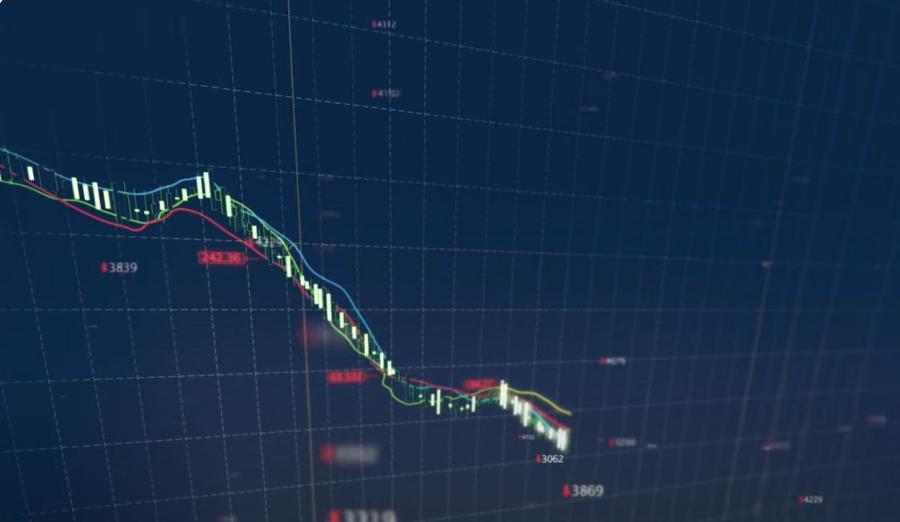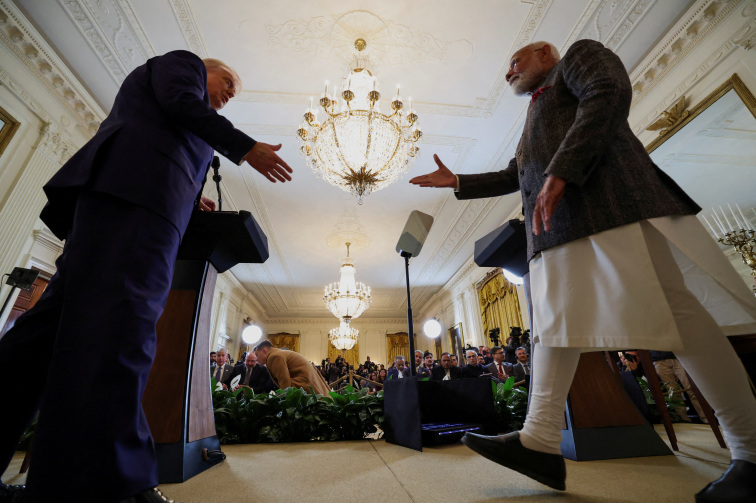Illustrative image: The Chinese stock market is in despair, and Chinese investors are trembling from their losses! (Video screenshot)
[People News] On the day of the military parade in Beijing, the Chinese stock market experienced a surprising crash, with the defence and military industry sector leading the decline, shocking investors. The day after the parade, the market recorded its largest drop in nearly five months. On September 9, A-shares fell across the board again, with all three major indices declining collectively, and trading volume in the Shanghai and Shenzhen markets decreased by 300 billion yuan compared to the previous trading day. Wang Jizhou, a prominent capital operations expert and founder of Yihe Capital, analysed the insider story behind this wave of stock market rise followed by a sharp decline on his social media channel.
On September 3, the day of the parade, despite the release of positive news for the military industry market, the morning session saw volatility and differentiation, with the Shanghai Composite Index leading the decline. The half-day trading volume in the Shanghai and Shenzhen markets reached 1.45 trillion yuan, down 456.7 billion yuan from the previous trading day. Overall, more stocks fell than rose, with over 4,300 individual stocks declining.
By the close on September 3, the Shanghai Composite Index had fallen by 0.96%, the Shenzhen Component Index by 0.63%, and the ChiNext Index remained flat. According to a report by the Securities Times, military-civilian integration concept stocks fell by 4.67%, ranking among the top declines in concept sectors. Within this sector, Beifang Changlong hit the 20% limit down, while Aerospace Science and Technology, Lijun Co., and Zhongtian Rocket also reached the limit down, with Jieqiang Equipment and Chenxi Aviation among the largest decliners.
The unusual movements in A-shares following the parade have drawn the attention of financial professionals. A netizen named 'Guyi Sheng' posted on the X platform on September 3, noting that the aerospace and military industry sector has been heavily hyped in recent years, creating a significant bubble, and the parade instead provided a prime opportunity for major institutions to offload their stocks.
In this context, Wang Jizhou has revealed another underlying reason. He referred to the recent fluctuations in the stock market as the 'Xi Jinping Resignation Bull Market' and the '150-Year Bear Market.' He noted that this is the first instance in Chinese stock market history where a bull market has emerged in anticipation of a national leader's resignation.
How did the 'Xi Jinping Resignation Bull Market' come about? Wang Jizhou explained that all fund managers, including his younger colleagues, believe that Xi Jinping is very likely to step down this time. There are even rumours circulating among domestic fund managers that Xi Jinping will not be present at the upcoming military parade. Consequently, there is a prevailing sense of optimism, with many preparing for a return to reform and opening up. This optimism led to a rapid surge in the stock market, which jumped from over 3,500 points to 3,800 points just before the parade.
Wang Jizhou stated that at 8:26 AM on September 3, the day of the military parade, was the pivotal moment between the bull and bear markets. What transpired at that time?
Xi Jinping was seen walking towards the Tiananmen Gate alongside Putin, Kim Jong-un, and others. They appeared to be engaged in lively conversation, seemingly oblivious to the media recording their exchange.
Xi Jinping's translator remarked in Russian: 'In the past, it was rare to see someone over 70; now people say that 70 is still just a child.'
Following this, there was a segment of Putin's speech that was difficult to hear, after which his Chinese translator added: 'With advancements in biotechnology, human organs can be continuously transplanted, allowing people to live younger and even achieve immortality.'
Finally, Xi Jinping could be heard responding: 'Some predict that in this century, people may be able to live to 150 years old.'
Wang Jizhou remarked that Xi, who is 72 years old this year, considers himself still a child. If he were to live to 150, there would still be 80 years of upheaval for everyone. Consequently, people's hopes have been dashed. This led to an immediate plunge in the stock market, marking the beginning of a 150-year bear market.
On September 9, A-shares saw a decline with reduced trading volume throughout the day, as all three major stock indices fell collectively, with the ChiNext Index dropping over 3% in the afternoon. By the end of trading, the Shanghai Composite Index had decreased by 0.51%, closing at 3807.29 points; the Shenzhen Component Index fell by 1.23%, closing at 12510.6 points; the ChiNext Composite Index dropped by 2.23%, closing at 2867.97 points; the Sci-Tech Innovation 50 Index fell by 2.38%, closing at 1245.53 points; and the China A50 futures index was down by 0.18% before the deadline, closing at 14807 points.
According to statistics from Wind, there were 1298 stocks that rose and 4009 stocks that fell across the two markets and the Beijing Stock Exchange, with 118 stocks remaining unchanged.
The total trading volume in the Shanghai and Shenzhen markets was 21.185 billion yuan, a decrease of 30.02 billion yuan compared to the previous trading day's total of 24.187 billion yuan.
Despite the sharp decline in A-shares, Wang Jizhou believes that this drop is not necessarily a bad thing. He argues that the market is fundamentally inflated and resembles a counterfeit market. If A-shares were to rise to 5000 points and then fall back, it could lead to some individuals taking drastic actions.
Some people claim that the Chinese stock market serves as a barometer for the Chinese economy, and with the current recovery of the economy, the stock market is expected to rise.
Wang Jizhou countered this assertion by questioning how much the Chinese economy has actually grown since 1990 and when the stock market has ever accurately reflected the state of the economy. He asked if it is really true that the stock market has only recently begun to act as a barometer for the economy in the past six months, and whether anyone truly believes that. △











News magazine bootstrap themes!
I like this themes, fast loading and look profesional
Thank you Carlos!
You're welcome!
Please support me with give positive rating!
Yes Sure!